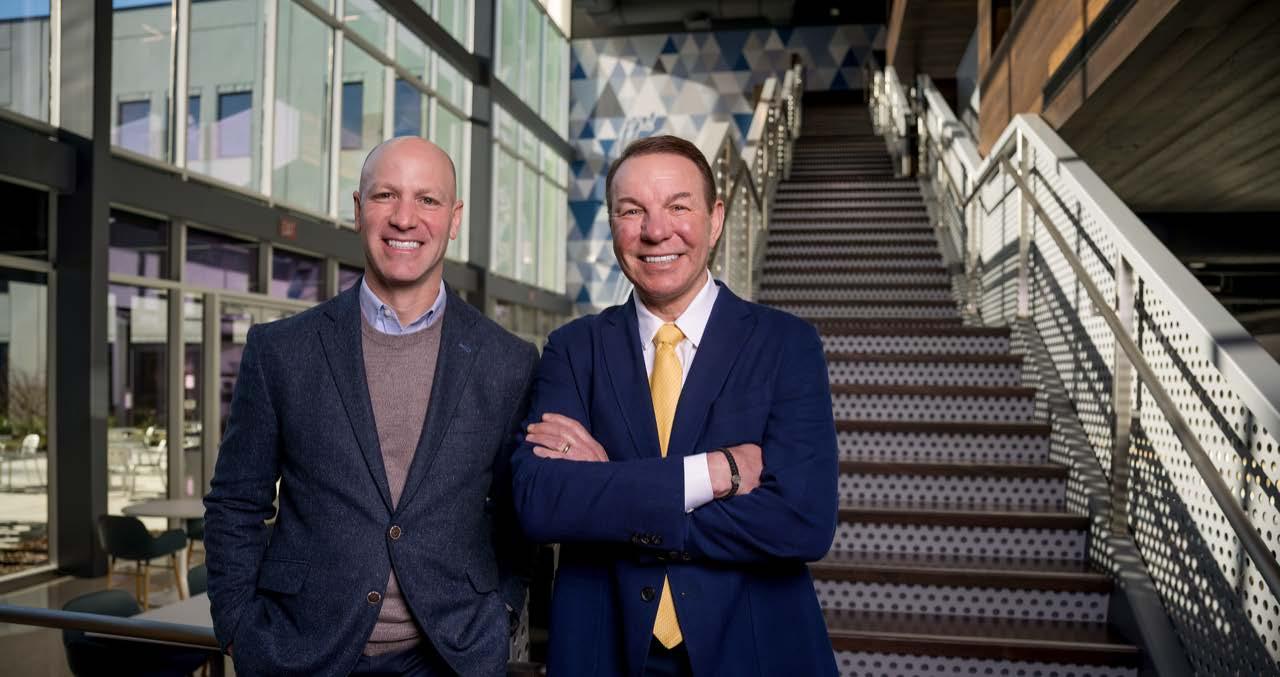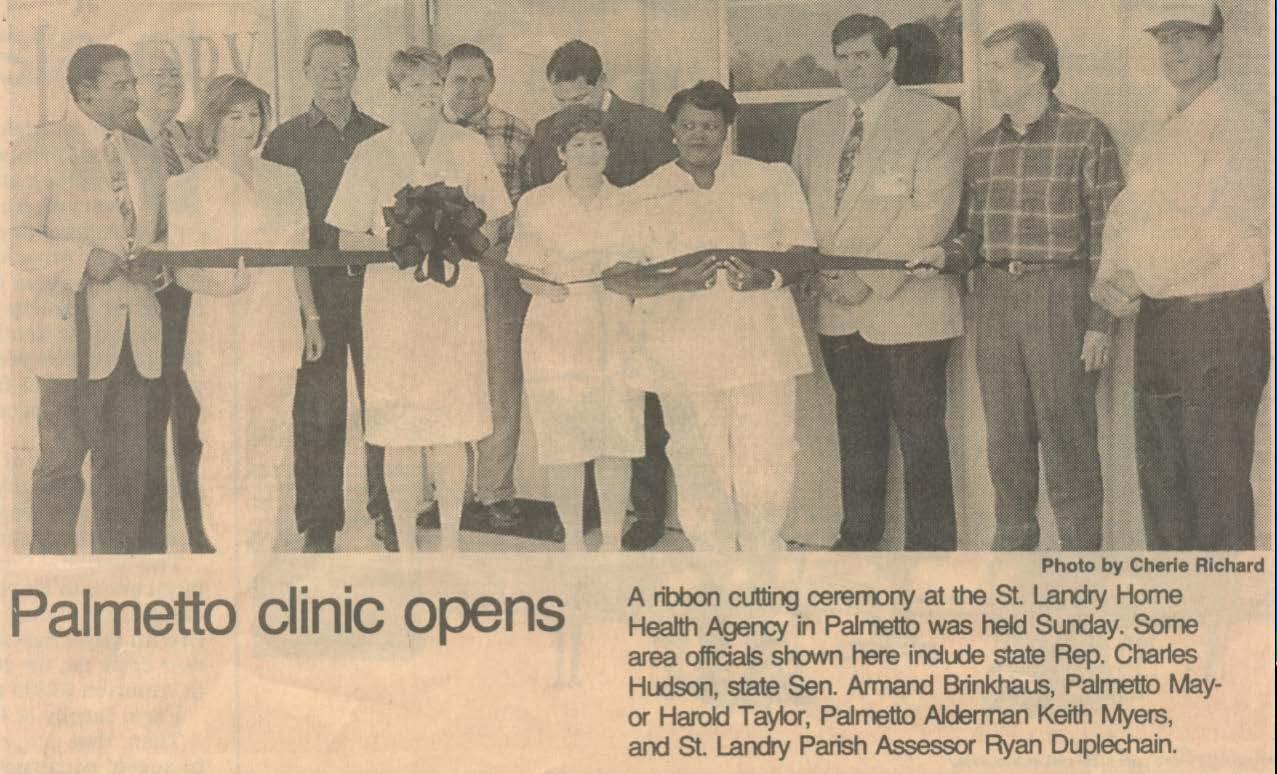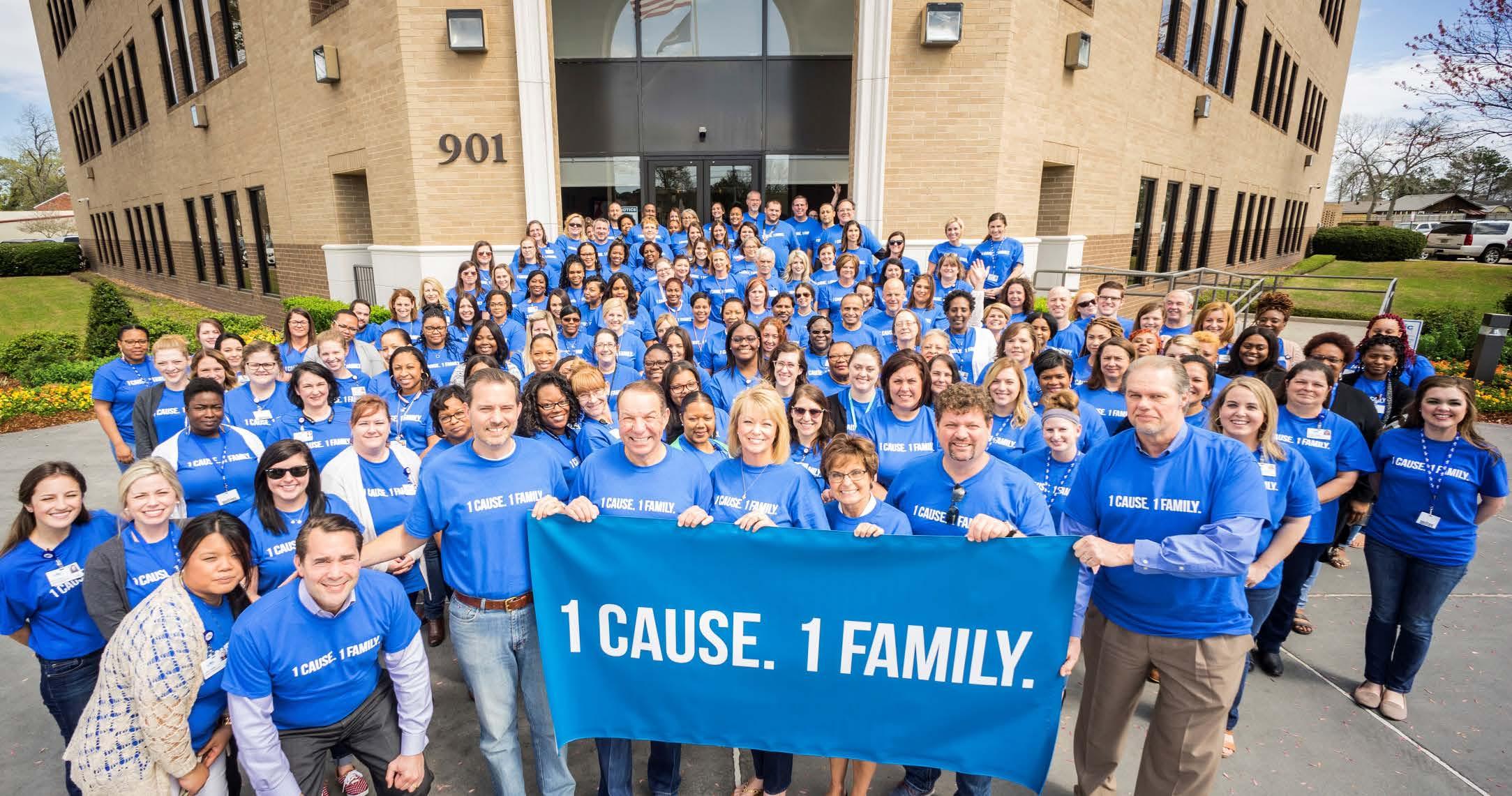
2 minute read
COMMUNITY CONCEPT ADDRESSES NATIONAL NEED
by LABI_Biz
IT’S BEEN 30 YEARS since Ginger Myers volunteered to help care for four elderly patients in their homes before and after her full-time job as a nurse in Opelousas, Louisiana. LHC Group, the company that grew from those humble beginnings, has become a leading national provider of in-home healthcare services.
In the early 1990s, those first four patients lived in and near Palmetto, a village in St. Landry Parish with a population of less than 200. Unable to access supportive services, they were at risk of premature placement in a long-term care facility.
Palmetto was also the home of Ginger and Keith Myers, and the city’s mayor reached out to Ginger for help. She was the only nurse living in the area, and Keith served on the City Council, as had both his father and mother. Ginger agreed to check in on her elderly neighbors before and after work. Keith, LHC Group’s chairman and CEO, said word spread and people began showing up at town hall meetings to inquire about a service they assumed was being provided by the municipality.
In 1994, Ginger and Keith, along with other concerned members of the was reimbursed through cost reports filed annually.
“There was no business motivation when we talked about our mission and purpose,” Keith says. “It was just a matter of doing what we felt morally obligated to do for our community.” community, acted personally to establish a line of credit through a local bank. They began the application process for opening a home health agency in the rural area of north St. Landry Parish–St. Landry Home Health. At the time, only the allowable cost of providing home health services
News of the home health agency opening in Palmetto spread quickly. Ginger was encouraged by physicians in St. Landry Parish to consider opening an additional St. Landry Home Health location in Opelousas–a joint venture with Opelousas General Hospital–where both Ginger and Keith were born.
That story kept repeating itself as other hospitals called. That’s how the company grew to become LHC Group.
The passage of the Balanced Budget Act of 1997 was the next significant step in the company’s history. That legislation replaced the cost-based reimbursement system for home health services with a prospective payment system. Because LHC Group’s operating model was lean and efficient, the company was able to operate within budget and generate a positive operating margin the first year of prospective payment. Those funds were invested back into the business, which continued growing with new location startups and industry consolidation.
As a major part of its growth strategy, Keith says LHC Group is always looking for prospective partners and opportunities to establish new locations in communities throughout the country.
“We’re now partnered with more than 400 leading hospitals and health systems around the nation,” says Brach Myers, LHC Group’s senior vice president of strategic partnerships and growth initiatives.
“Through our decades of experience, we’ve built impressive infrastructure capabilities, innovated solutions, and compiled a proven record of helping our partners succeed.”
Today, LHC Group’s 29,000 employees deliver home health, hospice, homeand community-based services, and facility-based care in 37 states and the District of Columbia – reaching 68 percent of the U.S. population aged 65 and older.


In the coming year, LHC Group anticipates expanding its patient-centered mission even further–a deal with UnitedHealth Group to buy LHC Group is expected to close in the first quarter of 2023. The plan is to pair LHC Group with Optum Health, which is already integrated into UnitedHealth’s network.
Keith says the move will better position LHC Group to continue growing and serving more people. For 30 years, the company’s purpose statement has been displayed across its website and throughout its Home Office halls: “It’s all about helping people.”
Now, he said, that phrase has evolved: “It’s all about helping MORE people.”









